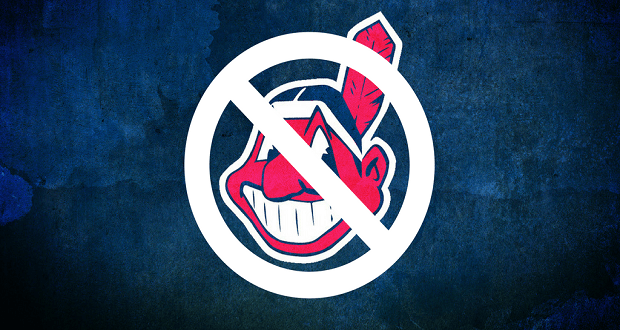Justice is not neutral. After decades of keeping politics, conflict and anything beyond the job description out of the workplace, we are recognizing the collective harm and inequities that often arise as a result of organizations’ commitment to being “impartial,” “neutral” or “apolitical.” Whatever you may call it, it has harmed not only those in our workplaces, but also our broader community.
On a cultural level, our interpretations of what is “neutral” are more often than not associated with a specific set of values — values that center European colonists’ (white Americans’) values, while deeming other cultural values as “less than,” and in the case of the workplace, unacceptable, or even penalized.
Our interpretations of 'neutral' is often associated w/a specific set of values that center European colonists’ (white Americans’) values, while deeming other values as less than, unacceptable, even penalized. Click To TweetExamples of this can be seen in common English idioms: “to each their own” and “it’s a shark-eat-shark world.” These common phrases indicate individuals are, above all, entitled to their own opinion, and have the responsibility to do whatever they need to get to the top. We see this in the competitive nature of promotions and professional growth, and it is often seen as a fact and normalized. Yet, in Japanese culture, harmony or group cohesiveness is valued more than being the best within a group of colleagues. Thus, promotions raises and the implications of how they would change the work dynamic are considered before any changes are made. Instead of competition, collaboration is operationalized as part of the decision-making process.
The problem isn’t that these values are different, but rather that we value one set of values more than the others, further solidifying the roots of injustice and inequity across underrepresented groups. For example, Asian Americans, albeit known to make higher salaries than most other racial/ethnic groups in America, are least likely to get promoted to management out of any other racial/ethnic group. What is absent in this statistic is the “why” — what are we perceiving as a “good leader?” What may be absent in many people’s understanding of the “why” is the Eastern value of harmony and collectivism being interpreted with bias (in the cultural context of white American individualism) as a weakness or a lack of proactiveness. What would a world be like where we valued collaboration as much as competition?
In order to operationalize justice, we must take an active, intentional stand in programs, policies and behaviors in order to validate ways of thinking beyond those that prioritize white cultural norms. It means bringing validity and power to sets of values, truths, ways of being, living, and thriving, that have been dismissed as “unpractical” “not our culture,” “inefficient” or “not factual” compared to white American culture. In fact, this oppression of thought and value systems has been termed “epistemicide”: the erasure of BIPOC scholarship, literature and thought leadership as unworthy and of lesser value.
We must take a stand to validate thinking beyond those that prioritize white cultural norms — bringing validity & power to what's dismissed as 'unpractical,' 'not our culture,' or 'not factual' compared to white American… Click To TweetSo, what are these different forms of value? How can we use these to redefine and shift our organizational cultures to be truly inclusive and disruptive of injustice?
Professor Edwin Nichols created a framework, Philosophical Aspects of Cultural Difference, that highlights some of the various cultural differences that inform culturally-differing (but equally valid) systems of value, summarized here:
| Racial/Ethnic Group | What do we value? | How do we define, right/wrong, success? |
| European (White colonial) | Acquiring an object or material item | Be measuring it |
| African | Interpersonal interaction | By going with a gut feeling informed by shared experiences |
| Asian | Social cohesion | By finding greater meaning through patterns in nature |
| Native/Indigenous to America | Finding balance and connection with history, present and future | Through symbols, signs, rhythm |
American workplaces, and how we define what is right and wrong, center white supremacy and European values (which have evolved into American values and have become normalized through colonization.) In both intentional and unintentional ways, these norms became our dominant culture, and what we define as the standard of behavior — in effect dismissing the multitude of value sets that Indigenous and immigrant cultures bring.
American workplaces, and how we define right & wrong, center white supremacy and European values (which have evolved into American values). In both intentional and unintentional ways, these norms became our dominant culture. Click To TweetIn what ways can we disrupt what is perceived as right, wrong, neutral, and unjust? How can we start operationalizing alternative ways of thinking, being, living? How can we amplify different cultural values in our policies, practices and DEIJ strategies? Here are some actions to consider embedding in your organization or even in your personal life based on Nichols’ framework above.
Interpersonal Interaction: Validating and empowering achievement beyond metrics and written rules
- Reassessing your policies to remove either/or thinking — for example, zero tolerance policies, gender binary language
- Collecting and embedding qualitative data and metrics as part of company performance measurements
- Creating open-ended descriptive performance reviews instead of quantitative measures
- Engaging in dialogue with community leaders to identify ways to offer time and resources (beyond just financial resources) to underserved communities as part of external DEI strategy
Social Cohesion: Embracing collective accountability and collaborative achievement
- Offering full-team performance rewards instead of individual employee awards
- Providing mentorship opportunities for BIPOC leaders and emerging leaders to engage in meaningful relationships across job levels
- Delineating leadership responsibilities by incorporating staff representation
- Offering extra resources and support for employees with joint families (i.e. living with elderly)
Transcendent Experience: Engaging with our historical past to repair harm for the future
- Consulting local indigenous leaders regarding best practices for environmental conservation
- Making reparations a reality: repair harm through your internal and external DEI strategy
- Offering alternative healing services and BIPOC mental health professionals as part of your health and wellness benefits
- Incorporating music and other performing arts in your DEI learning and development programs
Operationalizing justice means not just centering the experiences of those most impacted by oppression, but also centering their values. Ensuring diverse values are seen, respected and rewarded begins the journey toward equitable and just lives inside and outside of the workplace. That’s the work of liberation.
Operationalizing justice is not just centering experiences of those impacted by oppression, but also centering their values. This is the journey toward equitable & just lives in/out of workplaces. That’s the work of liberation. Click To Tweet




















